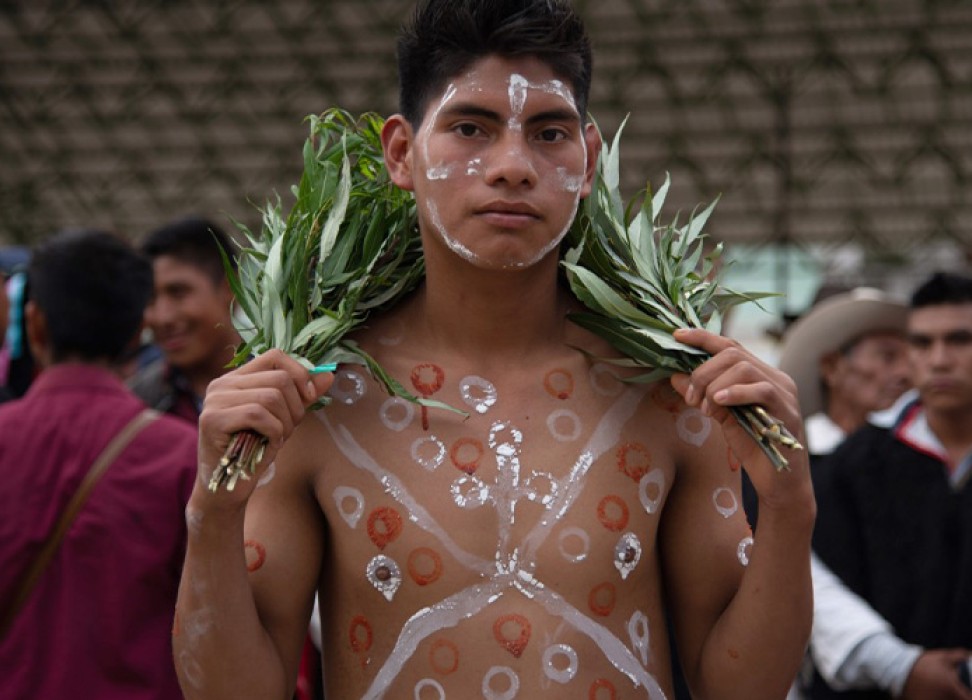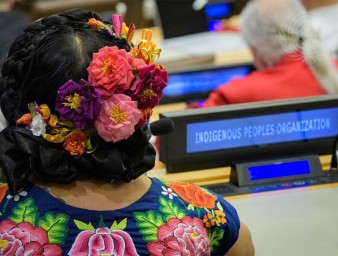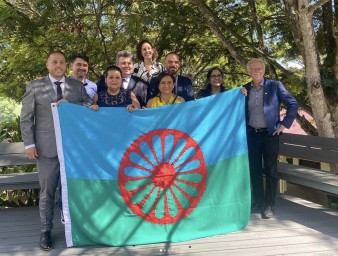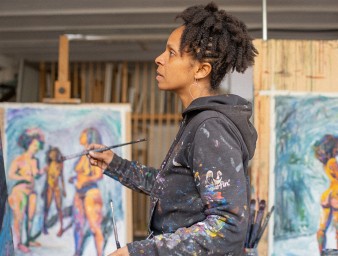Minorities and their rights matter to prevent conflict, says expert
22 April 2022

"The position of minorities across the world is grave – and is getting worse with a rise in hate speech and hate crimes targeting minorities around the world," said Fernand de Varennes, Special Rapporteur on minority issues.
De Varennes was speaking to the Human Rights Council in Geneva, where he presented his report on conflict prevention through the protection of the human rights of minorities.
Root causes of most violent conflicts
The report pointed out that the root causes of most violent conflicts are linked to violations of the human rights of minorities, and called for the mainstreaming of minority issues in conflict prevention efforts.
Conflicts globally are increasingly inside countries, the report states, often starting with an underlying tension around the treatment, or perceived weak position and place, of minorities.
De Varennes said that to address the common root causes of most conflicts, it is essential to deal with the grievances, real or perceived, before these can be instrumentalized by political forces or create explosive conditions that lead to violence.
"Since most contemporary violent conflicts involve aggrieved minorities, strategies to prevent conflicts involving minorities should figure prominently in international, regional and national initiatives and address directly the root causes of exclusion and injustice," he said.
This includes ensuring equality in access to economic and social opportunities for minorities, effective political participation and representation, measures to ensure their identity, and particularly their languages, are used in education, and constructive development of practices and institutional arrangements to accommodate diversity within society.
Social media hate speech fuels violence
The special rapporteur also warned against new trends that have added another powerful factor contributing to the global increase in violent conflicts: the rise of hate speech, xenophobia, racism and populist nationalism in social media, which has been fueling violence and attacks against minorities worldwide.
"The phenomenon of hate speech in social media was neither as visible nor as prominent in 2010 but appears now to be a significant driver in creating a context where minorities may find themselves increasingly targeted as ´others´ or as threats to the majority ´nation´, leading to an ´us versus them´ polarization, instrumentalized by majoritarian political personalities for short-term electoral gains," the report states.
"Mainstreaming a human and minority rights framework is necessary to both provide a more effective early warning tool to help prevent violent conflicts and avoid instrumentalization of minority grievances by outside parties."
Despite 2022 marking the 30th anniversary of the adoption of the UN Declaration on the Rights of Persons Belonging to National or Ethnic, Religious and Linguistic Minorities, the presence, position and treatment of minorities has not improved in recent years.
De Varennes said the UN failed to follow up on the prevention recommendations of the first Independent Expert on minorities more than 10 years ago. Those recommendations had said that attention to minority rights at an early stage – before grievances lead to tensions and violence – would save countless lives and promote peace and stability.
"Even at the United Nations and its initiatives, too many avoid or disregard the fact that certain minorities are often amongst the world’s most vulnerable communities – and not accidently."
The expert said the international community has to fill the significant gaps in early effective conflict prevention mechanisms that are failing to focus on the main drivers in most contemporary conflicts.
"Dangerous drift towards exclusion" in the U.S.
In his address to the Council, De Varennes also spoke about his recent mission report to the United States.
While lauding the Biden administration for what he called a commitment to respect international human rights and reconnect with the international community in the field of minorities, the Special Rapporteur expressed concern over a "dangerous drift towards exclusion of those with different colours of skin, forms or prayers, or sounds of their voices."
The Special Rapporteur said minorities in the U.S. are vulnerable to the gaps and omissions of a patchwork federal and state human rights legislation and protections first enacted in the 1960s civil rights movement.
De Varennes recommended the adoption of comprehensive national human rights legislation to include the USA’s international human rights obligations, particularly on the recognition of the right to equality without discrimination on grounds such as race, colour, sex, language, religion, political or other opinion, national or social origin, property, birth or other status.
"It is inconceivable that millions of American citizens, overwhelmingly minorities as my report highlights, cannot vote. The increasing number of barriers to vote without any discrimination and to be elected at genuine periodic elections by universal and equal suffrage are inconsistent with the Government’s obligations under international law. It also constitutes a direct and immediate danger to democracy in the country."



